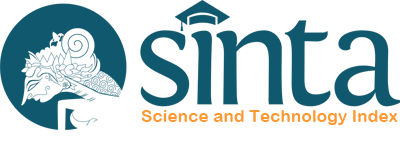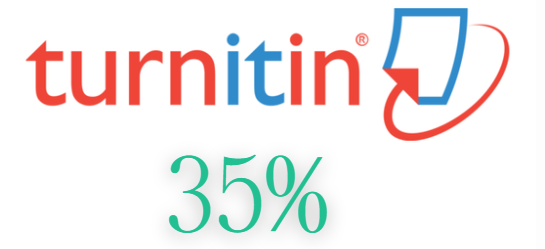Merdeka Curriculum: The Influence of Digital Literacy and GTK Space Application on the Teachers Readiness
Kata Kunci:
Digital Literacy, Teacher Readiness, GTK Room Application, Independent Curriculum, Educational TechnologyAbstrak
This research is aimed to find out to what extent digital literacy and the application Ruang GTK impacts the readiness of elementary school teachers in the implementation of the Merdeka Curriculum in Tasik Putripuyu Kepulauan Meranti. The research is quantitative in nature and is ex post facto correlational. A sample of 72 teachers was included, and their selection was purposive. A Likert-type scale was administered to measure the variables. The analysis performed was Pearson correlation, multiple regression analysis, and SPSS v.31. The findings revealed that digital literacy (r = 0.869, p < 0.001) and Ruang GTK (r = 0.921, p < 0.001) both positively and significantly impacted the teacher readiness. These two factors, combined, accounted for 86.5% of the variance in readiness. The findings suggest that improving digital competencies and equipping teachers with relevant software applications such as Ruang GTK significantly enhance preparedness to teach in difficult remote and under-resourced regions where drastic changes to the curriculum, imposed by national policy, are difficult to execute.Referensi
Ainun, F. P., Mawarni, H. S., Sakinah, L., Lestari, N. A., & Purna, T. H. (2019). Identifikasi Transformasi Digital Dalam Dunia Pendidikan Mengenai Peluang dan Tantangan di Era Disrupsi. Teachin.Id, 6(1), 1570–1580.
Alfarizi, M., & Sari, R. K. (2024). Budget Allocation For Education Towards The SDGs Vision In Indonesia: A Comparative Literature Perspective On Asean Countries. Jurnal Budget : Isu Dan Masalah Keuangan Negara, 9(1 SE-Articles), 1–34. https://doi.org/10.22212/jbudget.v9i1.194
Argudo-Serrano, J., Fajardo-Dack, T., Abad-Célleri, M., & Cabrera-Tenecela, P. (2023). Factors Affecting Students’ Motivation and Engagement in EFL Online Classes during the COVID-19 Pandemic. MEXTESOL Journal, 47(4), n4.
Asare, S., Amidu, A., Aning, E., Ampomah, T., Bediako, Y. A., Amuaful, E., & Baah, K. B. (2023). The Impact of Integrating Information Technology in Teaching English in College of Education: A Systematic Review . American Journal of Education and Technology, 2(3 SE-Review Article), 76–82. https://doi.org/10.54536/ajet.v2i3.1840
Bastian, A., Firdaus, M., & Rizky, R. (2023). The School Readiness in Implementing the Merdeka Curriculum in Pekanbaru : A Survey of Teachers and Students’ Perspectives. Jurnal Kependidikan: Jurnal Hasil Penelitian Dan Kajian Kepustakaan Di Bidang Pendidikan, Pengajaran Dan Pembelajaran, 9(4), 1162–1173. https://doi.org/https://doi.org/10.33394/jk.v9i4.9321
Daulai, A. F. (2021). Hakikat Manusia dan Pendidikan. Jurnal Tazkiya, 10(2), 68–85. https://doi.org/doi.org/10.30829/taz.v10i2.1222
David Bawden. (2008). Origins and Concepts of Digital Literacy. Digital Literacies - Concepts, Policies, and Practices, 17–32.
Elpin, A., Simarona, N., Aunurrahman, A., & Halida, H. (2024). Peran Platform Merdeka Mengajar (PPM) dalam Meningkatkan Efektivitas Implementasi Kurikulum Merdeka. Asatiza: Jurnal Pendidikan. https://doi.org/10.46963/asatiza.v5i1.1436
Ergül, D. Y., & Taşarb, M. F. (2023). Development and Validation of the Teachers’ Digital Competence Scale (TDiCoS). Journal of Learning and Teaching in Digital Age, 8(1), 148–160. https://doi.org/10.53850/joltida.1204358
Fabian, K., Smith, S., & Taylor-Smith, E. (2024). Being in Two Places at the Same Time: a Future for Hybrid Learning Based on Student Preferences. TechTrends, 68(4), 693–704. https://doi.org/10.1007/s11528-024-00974-x
Gündüzalp, S. (2021). 21 st Century Skills for Sustainable Education: Prediction Level of Teachers’ Information Literacy Skills on Their Digital Literacy Skills . Discourse and Communication for Sustainable Education, 12(1), 85–101. https://doi.org/10.2478/dcse-2021-0007
Hasibuan, A. A., Ishfi, M. H., & Halimah, S. (2025). Analisis Implementasi Kurikulum Merdeka dalam Meningkatkan Kesiapan Siswa Menghadapi Tantangan Era Digital dan Revolusi Industri 4 . 0 di MTs Tamansiswa Medan Analysis of the Implementation of the Independent Curriculum in Improving Student Readiness to F. Edu Society: Jurnal Pendidikan, Ilmu Sosial, Dan Pengabdian Kepada Masyarakat, 5(2), 253–262.
Kumalasani, M. P., Aini, D. F. N., Kusumaningtyas, D. I., & Sari, A. P. (2025). Memaksimalkan Produktivitas Guru SD Muhammadiyah 5 Kota Batu Melalui Pendampingan Penyusunan Media Literasi Sains Pada Kurikulum Merdeka. Abdimas Galuh, 7(1), 742–751.
Nasir, A., Zaini, S. H., & Jamaluddin, A. (2024). Kepentingan Sokongan Mempengaruhi Implimentasi Integrasi Teknologi Digital di Sekolah: Tinjauan Sistematik Literatur. Jurnal Pembangunan Sosial. https://doi.org/10.32890/jps2024.27.7
Ramadansur, R., Bastian, A., Rizky, R., Sembiring, A. K., Herdi, H., & Derin, T. (2024). A Solution with Its Own Problems : Analysing the Problems Encountered by the “Kampus Mengajar” Program. Jurnal Kependidikan: Jurnal Hasil Penelitian Dan Kajian Kepustakaan Di Bidang Pendidikan, Pengajaran Dan Pembelajaran; Vol 10, No 1 (2024): MarchDO - 10.33394/Jk.V10i1.8839 . https://e-journal.undikma.ac.id/index.php/jurnalkependidikan/article/view/8839
Rizki, R. A., & Fahkrunisa, L. (2022). Evaluation of Implementation of Independent Curriculum. Journal of Curriculum and Pedagogic Studies (JCPS), 1(4), 32–41. https://e-journal.lp2m.uinjambi.ac.id/ojp/index.php/jcps
Saputri, K. A., Baharudin, B., Asyha, A. F., Bahri, S., Hasanah, I. F., & Shabira, Q. (2024). Penggunaan Learning Management System (LMS) di Sekolah Menegah Pertama: A Systematic Literature Review. Learning : Jurnal Inovasi Penelitian Pendidikan Dan Pembelajaran. https://doi.org/10.51878/learning.v4i4.4014
Shambare, B., & Jita, T. (2025). A new era of learning: exploring science teachers’ perceptions of virtual lab in rural schools. Education and Information Technologies, 30(11), 15185–15205. https://doi.org/10.1007/s10639-025-13412-z
Suardana, O. P. I., Ayu, D., Agustini, N., Supriatni, E. T., & Suwignyo, H. (2022). Analysis of Teacher’s Readiness in Implementing “Kurikulum Merdeka” in Public Elementary Schools in Menanga District: a Case Study. ISCE : Journal of Innovative Studies on Character and Education, 6(2), 369–377. http://iscjournal.com/index.php/isce
Suherdi, D. (2012). The Use of Quality Pedagogic Language in the Teaching of English in Indonesian Setting. EDUCARE: International Journal for Educational Studies, 4(2), 2012.
Suryadi, A., Vivi, M., Putri, Afrina, & Lucky, A. (2023). Program Pengembangan E-Learning Sebagai Upaya Meningkatkan Kompetensi Profesional Guru. Jurnal Pengabdian Ibnu Sina. https://doi.org/10.36352/j-pis.v2i2.580
Thornhill-Miller, B., Camarda, A., Mercier, M., Burkhardt, J.-M., Morisseau, T., Bourgeois-Bougrine, S., Vinchon, F., El Hayek, S., Augereau-Landais, M., Mourey, F., Feybesse, C., Sundquist, D., & Lubart, T. (2023). Creativity, Critical Thinking, Communication, and Collaboration: Assessment, Certification, and Promotion of 21st Century Skills for the Future of Work and Education. In Journal of Intelligence (Vol. 11, Issue 3). https://doi.org/10.3390/jintelligence11030054
Triayomi, R., Endang, T., & Modestha, M. (2022). Teachers Readiness in Implementing The Independent Curriculum at SD Xaverius 1 Palembang. International Journal on Advanced Science, Education, and Religion (IJoASER), 5(4), 149–160. https://doi.org/. https://doi.org/10.33648/ijoaser.v5i4.248
Xue, L., Rashid, A. M., & Ouyang, S. (2024). The Unified Theory of Acceptance and Use of Technology (UTAUT) in Higher Education: A Systematic Review. Sage Open, 14(1), 21582440241229570. https://doi.org/10.1177/21582440241229570
Zakarya, M. A., Negeri, I., & Kalijaga, S. (2025). Optimalisasi Pendidikan Digital Nasional : Telaah dan Rekomendasi Kebijakan Bagi Kemendikbud dalam Bingkai UU SISDIKNAS. 5(2), 476–492.









